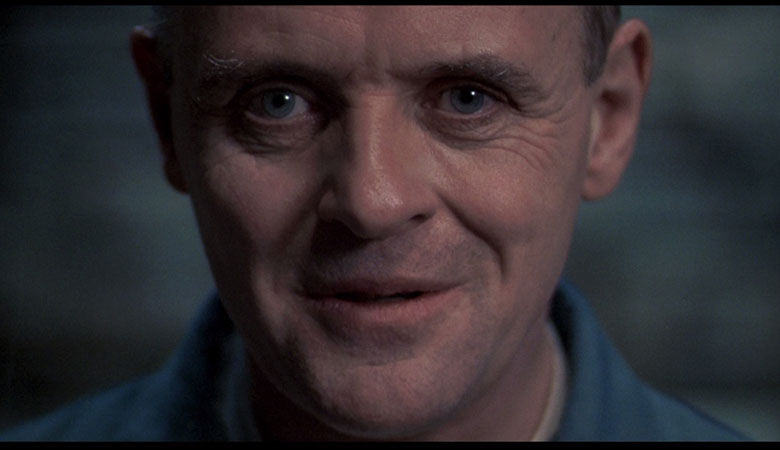Arguably one of the most beloved and vilified fictional villains in the cultural zeitgeist has to be Hannibal Lecter. Sophisticated and urbane, Dr. Lecter’s class and poise is matched only by his sheer bloodlust and Machiavellian machinations of the people around him.
But what is it about Hannibal the Cannibal that people seem to resonate with? What about his evil draws people in, allowing him to be venerated not as a villain, but as an anti-hero of sorts?
Hannibal Lecter: Beloved Villain
There is something to be said about Thomas Harris’ portrayal of Hannibal Lecter as both villainous and heroic: in The Silence of the Lambs, Hannibal proves his worth to investigators when he aids Clarice Starling in her pursuit of Buffalo Bill. Of course, Hannibal also proves his villainy by providing false information, psychologically manipulating Clarice, and ultimately escaping his confines.

This creates a character that facilitates the existence of both the heroic and the villainous in perfect co-existence within himself, with both aspects regulated by Lecter’s trademark tilt-proof demeanor. Hannibal is a man who cruises at 30mph while everyone else zooms past recklessly. He has killer (pun intended) one-liners, a viciously cold stare, unmatched intelligence, and a moral code that is privy only to himself (and, eventually, his pursuer-turned-lover Clarice).
In both movies and books, Hannibal is always portrayed as being aloof, but not without the need for affection and human connection, a strange, Hegelian mishmash of the inability to empathize but a desperate desire to do the same. Therefore some people see him as a hero: Hannibal only murders the people he sees are brutes, the people beneath his station of intelligence and breeding, a vengeful spirit who wipes out the rude and the uncouth. In a way, he represents all of our dark desires: rude waiter? Obnoxious officemate? Abusive boss? Why, if we were Hannibal Lecter, we would have none of those problems: we would eat them.
Hannibal Lecter: Why do We Love Him?
Hannibal Lecter is so popular that AFI selected him as the number one villain of all time, snatching the coveted spot from other movie villains like HAL 9000 from 2001, the Wicked Witch of the West from The Wonderful Wizard of Oz, and even Darth Vader. In fact, Hannibal Lecter’s quote — “A census taker once tried to test me. I ate his liver with some fava beans and a nice Chianti” — was deemed the number twenty-one top film quote of all time by AFI, edging out classic lines such as “Bond. James Bond” and “Houston, we have a problem.”
But the question remains, why do we love Hannibal Lecter? Personally, I think it’s because Hannibal represents the extremes of humanity: Hannibal represents the height of civility and taste, but he also represents the depravity that lurks within the deepest, darkest caverns of our soul. There is a need to resonate with a character that functions as the embodiment of high society yet is horrifyingly human.

Our fascination with Hannibal Lecter is directly tied to our society’s fascination with serial killers, those real-life incarnations of evil and putrid values. We hate serial killers, but we’re also enamored, and I think it’s less because of our interest with the topic of death, but rather, a tenuous fascination with the concept of someone who can manifest the dark desires that reside in all our hearts.
Let’s be honest: who here hasn’t thought about murdering someone for the smallest infraction? It’s a human impulse, after all, and one that society has worked –and is working –so hard to suppress. But serial killers somehow bypass this suppression, surrendering to their baser instincts and regressing to a primal state of brutality. This is the same mindset that allowed the Incredible Hulk to reach his level of fame: the Hulk represents our desire to let out our reptilian anger, the seething desire to murder that which inconveniences us, no matter how petty or brief.
But Hannibal Lecter is different: he maintains the façade of human society, maintains the fragile mask of civility, but exercises the vicious aspects of our nature. This, I think, is what contributes to his continued popularity, that he can exemplify the best and worst within us, and make it look cool. That we are so quick to disregard –or at the very least, excuse –Hannibal’s darker urges reflects who we are as a society: at the end of the day, we’re all still just animals waiting for an excuse to bite.





